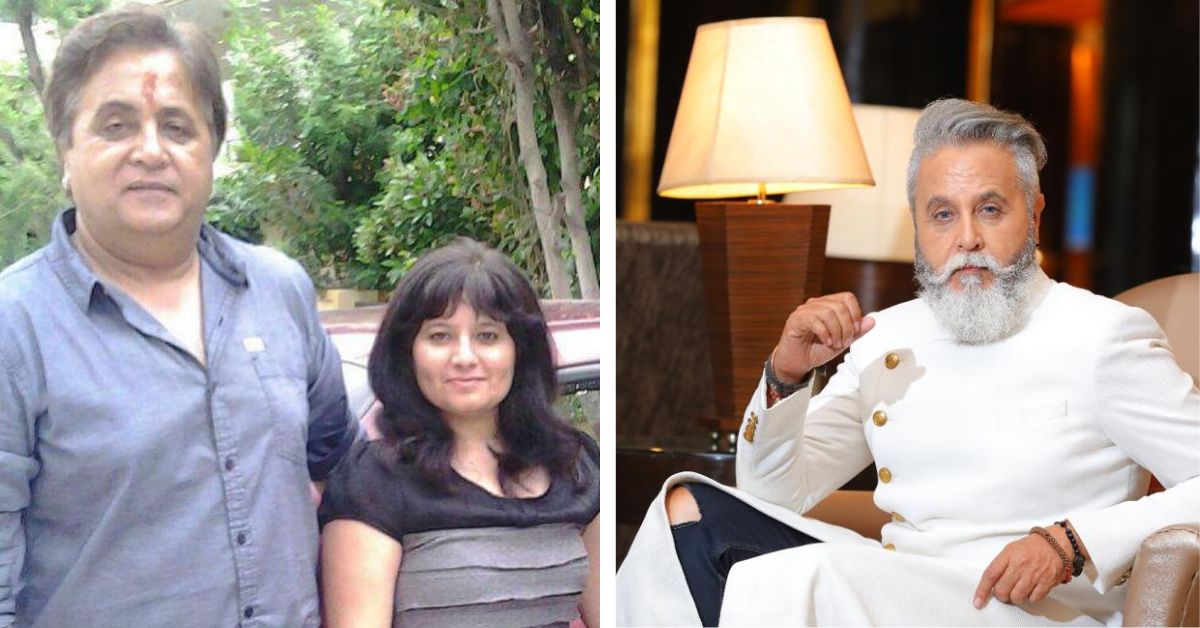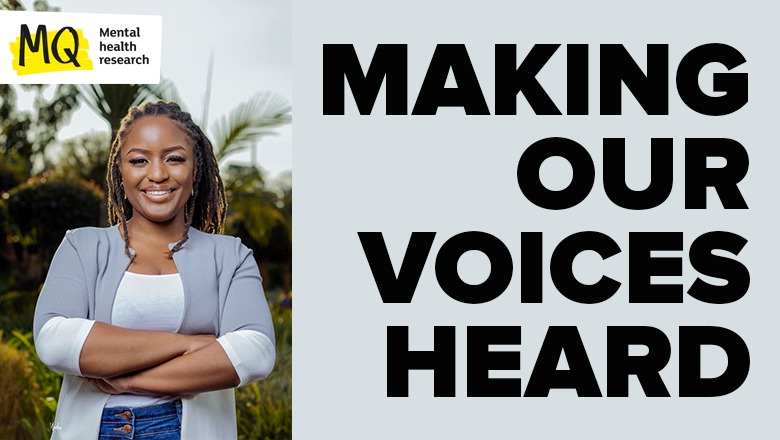Mental Health Conditions can evolve throughout life as can our understanding of them. Finding the right treatment, the right diagnosis and understanding about the unique underlying factors for our own life can be key to recovery.
In this personal story, MQ supporter Mike Oglesbee kindly shares how examining his own life and upbringing helped him make progress.
Destructive Survival
Growing up in a small town with few resources, I struggled on the road of life. I developed anxiety, depression, suicidal ideations, and a hair-pulling addiction called trichotillomania by the time I was a teen. I was in a constant battle with fear.
While some in similar positions shut down, close themselves off from the world, and do their best to become invisible, I chose a more destructive path of rebellion. I became loud with both my words and actions. I didn’t feel heard, so I resorted to getting in trouble and causing issues for those around me.
By the time I was mid-teens, I had already been kicked out of school three times. I had a reputation for being a troublemaker and due to my behaviour I had become one of those kids parents warned other kids about. I often say that I messed up so much because I was so messed up.
Unmet Needs
It’s not that I grew up in a bad home, neighborhood, or situation. My mother worked at a bank in the city about an hour away, which caused her to get home around 6 in the evening. My father worked 12-hr swing shifts at a factory almost seven days a week to ensure we always had what we needed.
While they did the best they knew, something was missing for me. I didn’t receive the emotional support I needed to grow and develop mentally and emotionally in a healthy way. They didn’t know how to meet my needs or even that they weren’t met. With three kids, they did their best to give each of us what they thought we needed.
Growing up in an environment that could not meet my specific needs, I didn’t learn how to meet them. I just stuffed down my emotions because I didn’t know how to deal with them. This didn’t get rid of them. Instead, it caused me to suffer even more. I lashed out more to overcompensate for the discomfort I felt.
Value and Worth
While I heard that time heals all wounds, this was not the case for me. My difficulties followed me into adulthood, where I experienced many struggles with relationships and low self-esteem. I made many poor choices, but I had a great work ethic from watching my father, which allowed me to overcompensate by becoming a workaholic.
Being a workaholic became just another addiction I used to cover up my inadequacies. Even though I excelled in my performance, I felt it was never enough. I felt as though I was never enough. To my mind, nothing was ever enough to raise me higher than my low self-esteem, but I continued to reach for higher and loftier goals.
And while I achieved many great things, including eating dinner with the president of the US, visiting countries all over the world, being voted in as the president of a rodeo association for the military, and being the top performer at my job, none of it mattered. I didn’t own and fully accept my accomplishments even though I was constantly striving for them.
I needed them because they would make me valuable and worthy. I relied on my external results to validate and magnify my worth. But they never did. It was just another empty well I was trying to quench my thirst from.
Perceptions of Change Can Change
In my late twenties and early thirties, I discovered hypnotherapy and neuro-linguistic programming while attending college for my Bachelor’s in Psychology. I’ve always been fascinated by the mind and the possibilities of what we can achieve in specific mental states. I began attending certification programs hoping these tools would finally lead me to overcome the debilitating mental health issues that had robbed me of peace throughout my life.
At first, they helped a little. My life didn’t magically change, but it started to. The biggest mistake I made while interacting with these modalities was that I thought they would change me. I thought they would make me a different person and that I could finally live the way I wanted. I soon learned that I was pretty naïve.
After practicing with these modalities, I caught the attention of a local chiropractor and cancer doctor, who invited me to work with their clientele. Like many in the field of psychology, I figured that I could help myself by helping others. That’s when my company, Maximized Mind Hypnotherapy & Coaching, was born.
Complex Mental Illness
One might think someone in my position wouldn’t have issues like anxiety, depression, OCD, or other mental illnesses. After all, how could I help others if I couldn’t even help myself? But I was able to help others significantly change their lives even though I hadn’t entirely done it for myself.
As I worked with others over the years, I was able to design strategies and tools to help my clientele as well as myself. I learned many things about healing mental illness that, when applied, works. The biggest lesson I learned was self-discipline.
Managing many mental illnesses is possible, but not without self-discipline. It took me years of work on myself to finally release my anxieties, OCD, and depression. I had to learn how to introspect, find the core causes of my struggles, and work to replace them. I’m not talking about where they began, but where they were currently coming from. The answer was my core identity.
The Unexamined Life
Growing up without my needs being met taught me many things about myself. It taught me that I wasn’t valuable enough, good enough, nor did I deserve to be heard and validated. When I discovered these beliefs and stories at the core of my identity, I began working to replace them.
I decided to work on myself as much and as long as it takes to change my programs and beliefs. It took me years to change them because they were so deeply interwoven in the fabric of my being, but I finally did it! That was several years ago, and there are still many things I would like to change, but I finally get to live a life I enjoy and love.
Now, I get the opportunity to teach valuable skills to help others overcome their struggles and step into a life they can fall in love with. It isn’t easy to change your life. As strange as it may sound, though most people want their lives to change, most are unwilling to change it.
Humans Seek Familiarity
People get comfortable with the familiarity of the chaos around them. They learn to function in it, which becomes like an addiction. However, learning to let go is a skill that can lead you to greater success and happiness. Life is hard. It’s not easy being human, even for those who don’t struggle with mental health issues.
Managing mental health issues is a journey that requires its participants to work hard, be consistent, and be self-disciplined. It requires knowledge and studying. I often say that life is like a university and that there’s only one subject for you to learn; yourself. You can do this only by studying yourself and taking time to introspect. Once you do this, a better life without debilitating mental health issues may also become possible for you.
Thank you to Mike for the generosity in sharing.
For some, managing mental illness, rather than living without them, is a valid goal. All mental illnesses are treatable and all mental illnesses make sense. Help is available for everyone affected by mental illness. If you feel you need help, it is available here.
Source link





